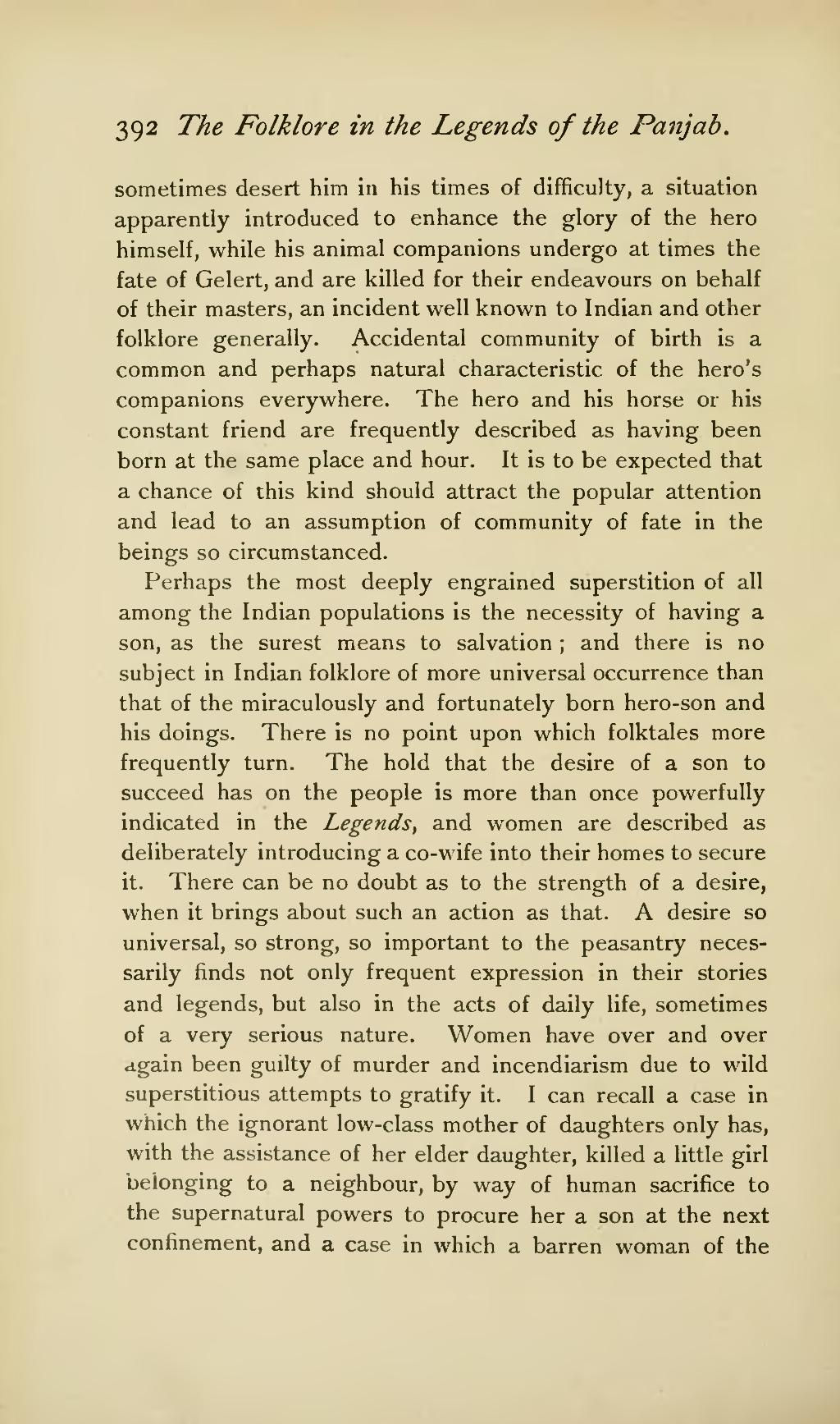sometimes desert him in his times of difficulty, a situation apparently introduced to enhance the glory of the hero himself, while his animal companions undergo at times the fate of Gelert, and are killed for their endeavours on behalf of their masters, an incident well known to Indian and other folklore generally. Accidental community of birth is a common and perhaps natural characteristic of the hero's companions everywhere. The hero and his horse or his constant friend are frequently described as having been born at the same place and hour. It is to be expected that a chance of this kind should attract the popular attention and lead to an assumption of community of fate in the beings so circumstanced.
Perhaps the most deeply engrained superstition of all among the Indian populations is the necessity of having a son, as the surest means to salvation; and there is no subject in Indian folklore of more universal occurrence than that of the miraculously and fortunately born hero-son and his doings. There is no point upon which folktales more frequently turn. The hold that the desire of a son to succeed has on the people is more than once powerfully indicated in the Legends, and women are described as deliberately introducing a co-wife into their homes to secure it. There can be no doubt as to the strength of a desire, when it brings about such an action as that. A desire so universal, so strong, so important to the peasantry necessarily finds not only frequent expression in their stories and legends, but also in the acts of daily life, sometimes of a very serious nature. Women have over and over again been guilty of murder and incendiarism due to wild superstitious attempts to gratify it. I can recall a case in which the ignorant low-class mother of daughters only has, with the assistance of her elder daughter, killed a little girl belonging to a neighbour, by way of human sacrifice to the supernatural powers to procure her a son at the next confinement, and a case in which a barren woman of the
